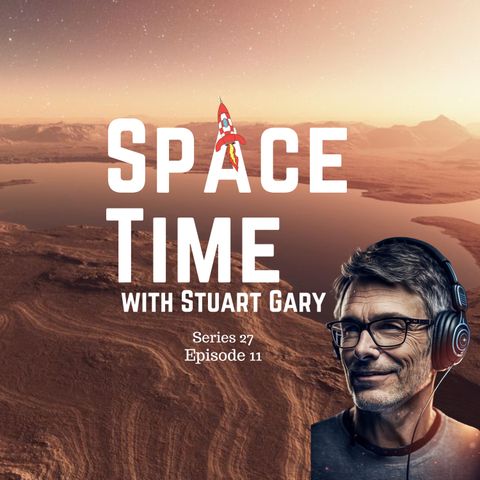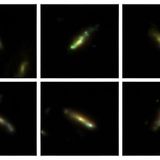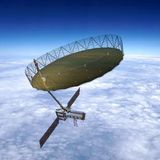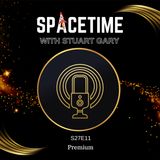S27E11: Mars could have had flowing water for hundreds of millions of years

Download and listen anywhere
Download your favorite episodes and enjoy them, wherever you are! Sign up or log in now to access offline listening.
S27E11: Mars could have had flowing water for hundreds of millions of years
This is an automatically generated transcript. Please note that complete accuracy is not guaranteed.
Chapters
Description
🌏 Get Our Exclusive NordVPN deal here ➼ https://nordvpn.com/stuartgary or use the checkout code STUARTGARY. It’s risk-free with Nord’s 30-day money-back guarantee! ✌ The Space News Podcast. SpaceTime Series 27...
show moreThe Space News Podcast.
SpaceTime Series 27 Episode 11
*Claims Mars could have had flowing water for hundreds of millions of years A new study based on impact crater erosion rates suggests water may have flowed across the Martian surface for hundreds of millions of years.
*New Webb telescope data shows early galaxies looked like pool noodles, surfboards New images from NASA’s Webb space Telescope show that early galaxies at the dawn of time are often flat and elongated, like surfboards and pool noodles.
*NASA’s new mission to capture star stuff Scientists are working on a new instrument to capture stardust from interstellar space. The instrument called the Interstellar Dust Experiment or IDEX will be a key component of NASA’s new Interstellar Mapping and Acceleration Probe –IMAP which will launch in just over a year from now.
*The Science Report
The World Meteorological Organization confirms 2023 was the hottest year globally since records began.
Researchers have taken a critical first step to creating a successful HIV vaccine.
Palaeontologists find a new species of tyrannosaur that’s the closest relative of Tyrannosaurus rex.
Alex on Tech Samsung’s new Galaxy S24 smart phones
https://spacetimewithstuartgary.com https://bitesz.com
Listen to SpaceTime on your favorite podcast app with our universal listen link: https://spacetimewithstuartgary.com/listen and access show links via https://linktr.ee/biteszHQ
Your support is needed...
**Support SpaceTime with Stuart Gary: Be Part of Our Cosmic Journey!**
SpaceTime is fueled by passion, not big corporations or grants. We're on a mission to become 100% listener-supported, allowing us to focus solely on bringing you riveting space stories without the interruption of ads. 🌌 **Here's where you shine:** Help us soar to our goal of 1,000 subscribers! Whether it's just $1 or more, every contribution propels us closer to a universe of ad-free content. **Elevate Your Experience:** By joining our cosmic family at the $5 tier, you'll unlock: - Over 350 commercial-free, triple episode editions. - Exclusive extended interviews. - Early access to new episodes every Monday. Dive in with a month's free trial on Supercast and discover the universe of rewards waiting for you! 🌠
#space #science #astronomy #news #podcast #spacetime #spacepod
Information
| Author | bitesz.com |
| Organization | bitesz.com |
| Website | spacetimewithstuartgary.com |
| Tags |
Copyright 2024 - Spreaker Inc. an iHeartMedia Company






